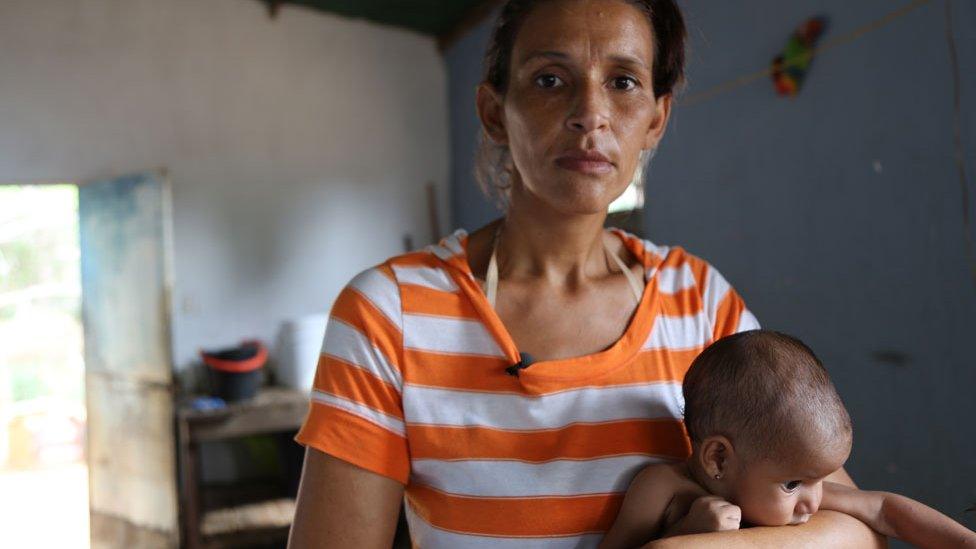Venezuela protests: Women march against Maduro
- Published
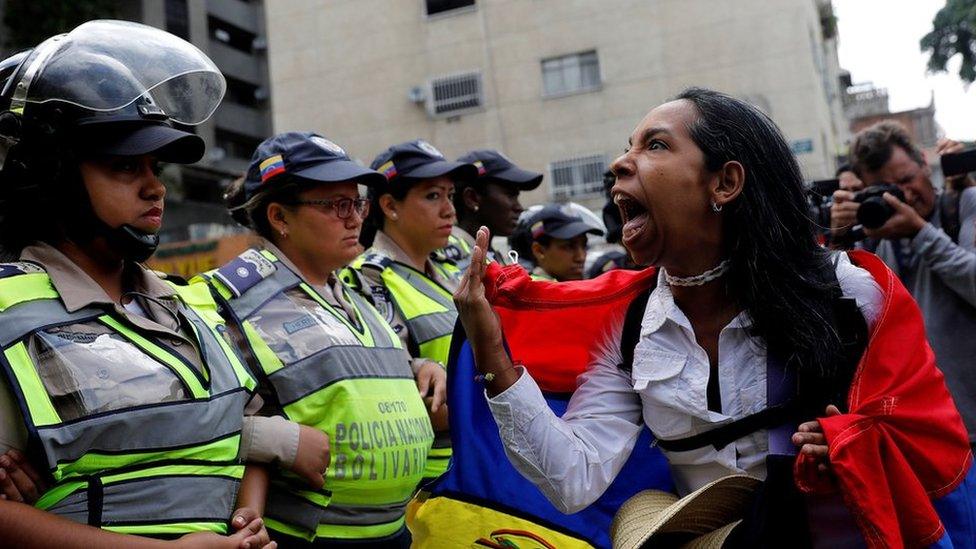
The women's march was against what they see as repression by security forces against demonstrators
Hundreds of women have marched in the Venezuelan capital, Caracas, continuing a wave of protests against the rule of President Nicolas Maduro.
The women, dressed in white and led by opposition MPs, denounced what they consider repression by security forces.
The US has also expressed concern about what UN ambassador Nikki Haley called a "violent crackdown".
At least 36 people have died and hundreds have been injured in weeks of protests.
In a statement, Ms Haley accused Mr Maduro of "disregard for the fundamental rights of his own people", which she said had "heightened the political and economic crisis in the country".
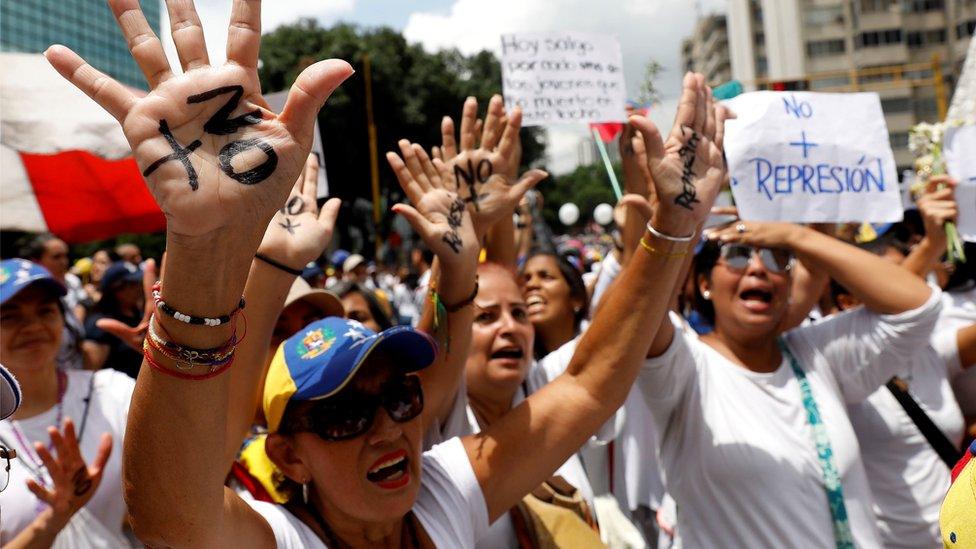
Opposition MPs were among the marchers
Meanwhile the White House said President Trump's national security advisor HR McMaster on Friday met Julio Borges, the president of Venezuela's opposition-controlled National Assembly.
They discussed the need for the Venezuelan government to release political prisoners and hold free and democratic elections, White House press secretary Sean Spicer said.
Earlier a young man was shot dead in violence in the city of Valencia. In Caracas an armoured vehicle was caught on video ploughing into protesters.
"The dictatorship is living its last days and Maduro knows it," former MP Maria Corina Machado told AFP news agency at the women's march.
"That's why there are these unprecedented levels of repression."
An armoured vehicle was captured on camera driving over protesters.
Demonstrators are angry over what they describe as Mr Maduro's plans to amass power in his own hands.
They were particularly incensed by a recent decree that creates a 500-member constituent body to rewrite the constitution, a step that would bypass the National Assembly.
Amid the unrest, youths have been looting shops in several cities hit hard by the worsening economic crisis.
An AFP correspondent in the northwestern city of Valencia said it looked like a disaster zone.
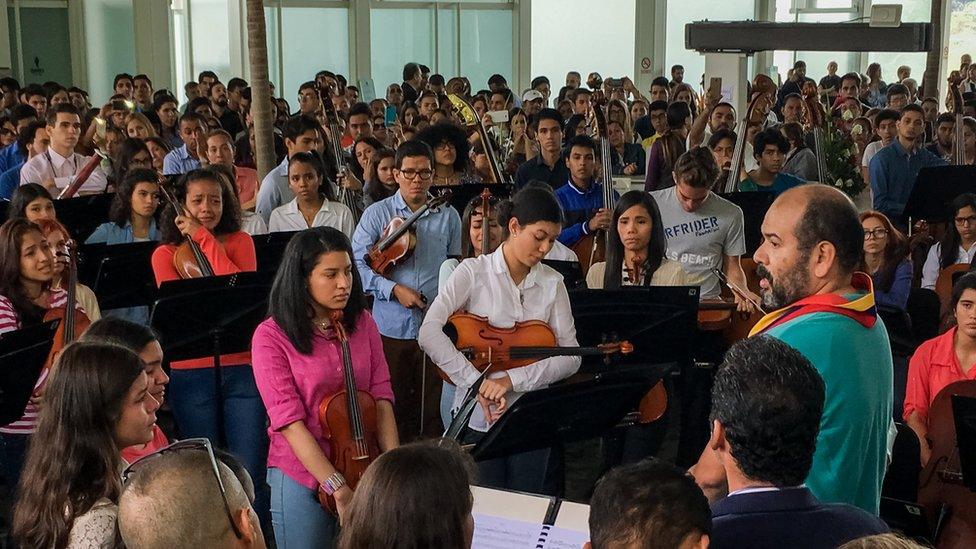
Several dozen people have been killed during weeks of protests, including Armando Cañizales Carrillo, whose funeral (pictured) was on Friday
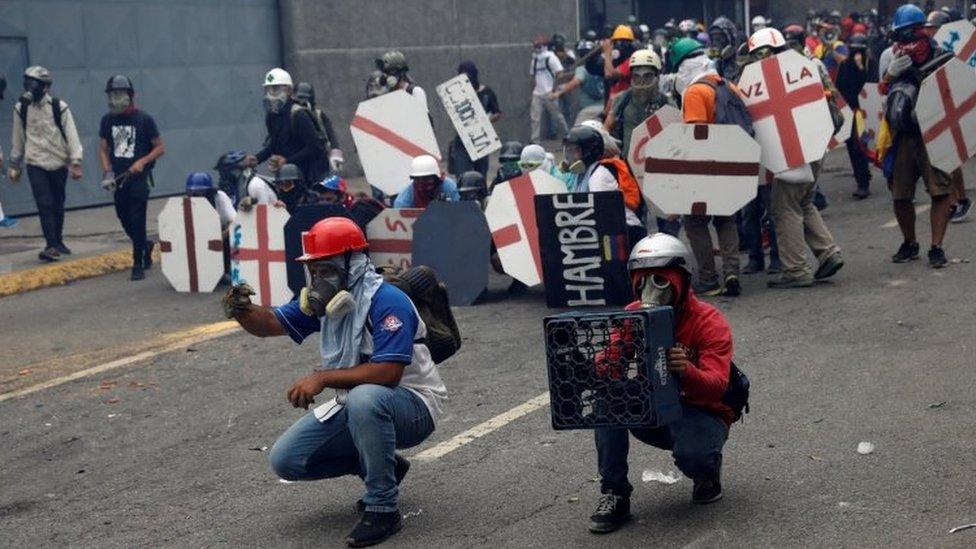
The demonstrations have now been taking place almost daily for the past month
Meanwhile video posted on social media purportedly showed the pulling down of a small statue of Hugo Chavez in the western town of Rosario de Perija.
Mr Maduro succeeded Mr Chavez, a popular but divisive leader, who had introduced wide-ranging social welfare programmes and died in 2013.
Since then, falling prices for Venezuelan oil exports have cut government revenue and there have been shortages of food, baby milk, medicine and other basics.
The International Monetary Fund has forecast that inflation in Venezuela will be above 700% this year.
Presidential elections are due at the end of next year.
- Published2 May 2017
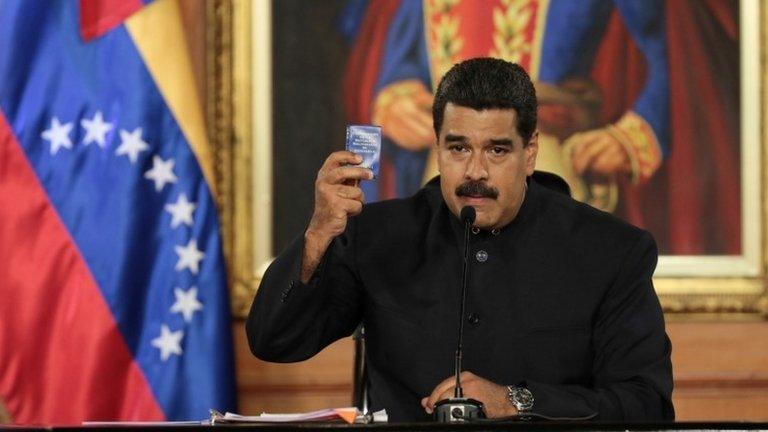
- Published1 May 2017

- Published28 April 2017

- Published12 August 2021
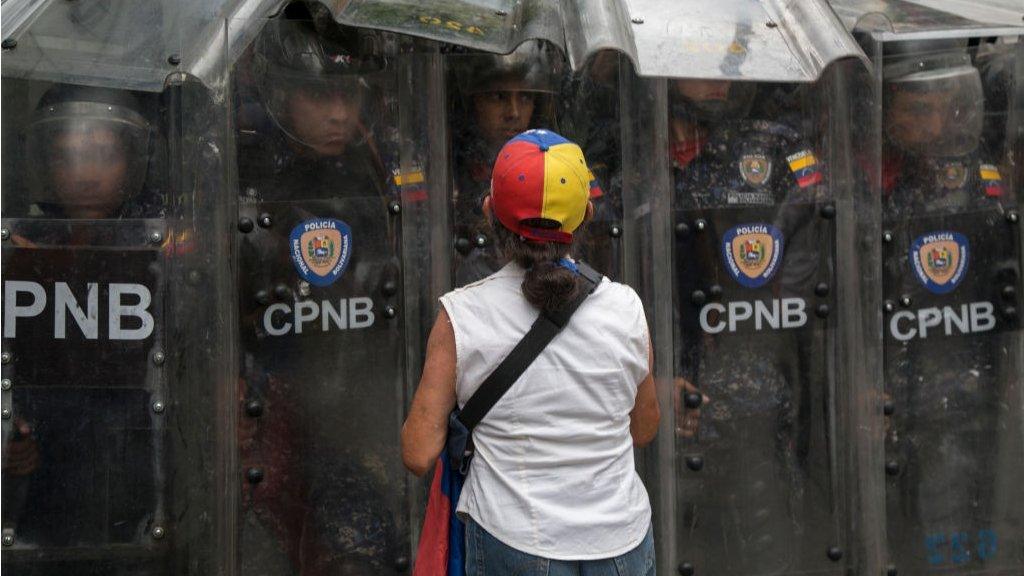
- Published29 July 2016
